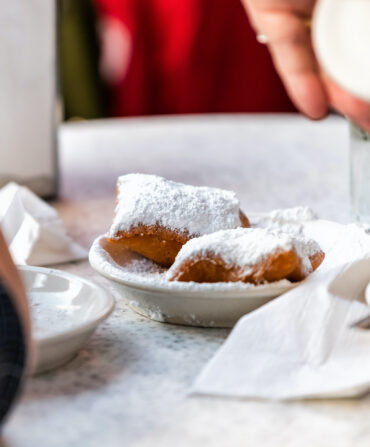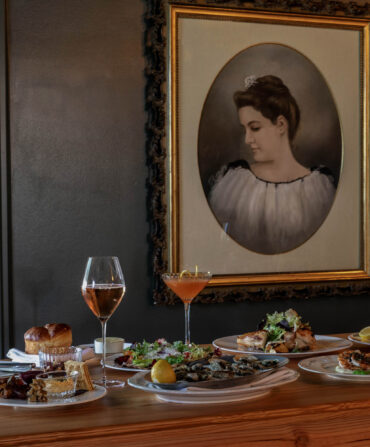
Q: Is there a “right” way to make cornbread? In other words, sugar or no sugar?
This is a family magazine, and it’s the Food Issue, so I’ll try to be diplomatic here—which may not work: The addition of sugar to this centuries-old bread is a mark of low character. The color of the cornmeal matters somewhat less, but white is preferred. I won’t say that adding sugar to the recipe was a vast national conspiracy to undermine the South’s obvious culinary supremacy in America—although I suspect it was—but it was a ferocious attack on a fundament of Southern cuisine, if not upon the region itself. So that you can understand the enemy and combat him properly, allow me to explain that the Cornbread Wars are quite insidious, because every nutball with an oven and a sack of meal insists on messing with perfection. When French and English Southerners learned from the Choctaw, Creek, Chickasaw, and Cherokee cooks in the seventeenth century that corn could yield a fine meal for breads and stuffings, there was no sugar in the recipe, or anywhere near this grain. Why on earth would there have been? There’s enough sugar in the grain—that’s why they can make liquor out of it. What the masterly American Indian cooks knew about cornbread was that, correctly done, it bore a delightfully tangy bitterness. Do you want sugar wrecking all that fine chemistry? Tragically, sugar has wormed its way into Southern kitchens, so now you’re in as much danger at home as you are abroad of having to eat an unfortunate pastry masquerading as cornbread. What you should do after such an encounter is bake up a batch of real cornbread in a properly greased iron skillet, mash some up in a glass of cold buttermilk, and eat that with a spoon. Then you will be bitterly and properly buttressed as a Southerner.
Q: The same couple is now regularly parking next to us when we tailgate at home games. At first we thought they were being friendly. Now it’s clear they just want to Hoover up our spread. Help!
This time of year, there’s nothing like a good kick-ass fried-chicken, slaw, and/or barbecue spread with the prospect of a good kick-ass SEC game stretching out over a long Saturday afternoon. Sadly, you’re gonna have to punt the spread. You have contracted the culinary equivalent of head lice, and you must immediately quarantine yourselves. Because once you’ve been “sourced” by parasitic perma-guests, you’re pretty much sunk. There are “hosts” and “guests” in the world. You’ve met some bad guests. There’s nothing to say that they will understand. You have to treat them as you would a pair of marauding raccoons and remove the comestible stimuli. Don’t fret about their “feelings.” They’ll move on swiftly to poach from others—it’s written in their tailgate varmint survival code, part of an array of DNA-based deficiencies in bad guests globally, not just within the SEC. Console yourself with the fact that Thanksgiving is around the corner. Unlike tailgating, the holiday is an excellent showcase for your skills to which they won’t be able to invite themselves.
Q: Last year, one member of our deep-sea fishing party was overheard telling a stranger in a bar that he landed the marlin when he didn’t. Invite him back?
Fish can at times provoke these fits of lying, in anybody, really. So, blustery as this was, flip the event: A stranger in a bar was the nominal beneficiary? No. The stranger who had to endure the story was just the straw man, the excuse to spin the yarn. Your fishing buddy moved the marlin into his hands in order to see himself catch the fish. He needed to star in the movie that was running in his head, but he could only make the movie real by screening it for somebody who wasn’t on the boat. In other words, he had a human moment. I’d err on the side of forgiveness. Making him unwittingly walk a metaphorical gangplank, a year after the fact, does not seem fully deserved. Don’t hesitate to rake him over the coals about it next time you put him in the chair, though.







